Understanding Business 11th Edition by William Nickels -Test Bank
4
Student: ___________________________________________________________________________
- The Enron scandal illustrates the difference between unethical behavior and illegal behavior. True False
- Ethical behavior requires more than following the law. True False
- Legal behavior and ethical behavior are basically the same. True False
- A society gets into trouble when people consider only what is illegal and not also what is ethical or unethical.True False
- Ethical behavior refers to the standards that are accepted by society as right or wrong. True False
- People should look at each situation individually and decide for themselves if it is right or wrong. True False
- Given the level of diversity within the United States, agreement on common standards of ethical behavior is unachievable.True False
- An accurate statement regarding this chapter is: “Business law establishes ethical behavior.” True False
- Legal behavior is directly related to our relationships with others, while ethical behavior is not. True False
- Legal behavior is a first step toward ethical behavior. True False
- Laws that protect us from fraud, theft and violence determine ethical behavior. True False
- Moral behavior refers to behavior that is accepted by society as right versus wrong. True False
- Ethical behavior focuses on treating others fairly. True False
- Making accounting records more transparent may help restore trust in the free-market system and leaders in general.True False
- Punishing business leaders who have broken the law may help restore trust in the free-market system and leaders in general.True False
- Making businesspeople more accountable for company actions may help restore trust in the free-market system and leaders in general.True False
- People involved in business may be tempted to do something unethical in order to increase sales and profits, but rarely do because if they are caught, our legal system will deal harshly with them.True False
- Jake and his college friends frequent a small pub on weekends. Last weekend, after a few beers, one of his friends decided to take the salt and pepper shakers from their table because they needed a set at their apartment. In this situation, this was not a particularly questionable activity because it was a restaurant where one pays for these extras.True False
- Ethical behavior involves the clear and easy choice of right and wrong actions toward others. True False
- Both managers and workers cite low managerial ethics as a major cause of American businesses’ competitive woes.True False
- A common form of cheating in schools today is plagiarizing online material. True False
- Making ethical choices is always easy. True False
- Two recent studies found a strong correlation between academic dishonesty among undergraduates and dishonesty at work.True False
- The question “Is it legal?” establishes ethical behavior. True False
- It can be very difficult to maintain a balance between ethics and goals such as pleasing stakeholders. True False
- Trying to make decisions that will benefit all parties involved is consistent with the question “How will it make me feel about myself?”True False
- While telling an abusive joke about an ethnic group may not be unlawful, it is unethical. True False
- An ethical manager’s decisions are based only on the following questions: “Is it legal?” and “Is it profitable?”True False
- Behavior that is in conflict with your values and sense of right and wrong can damage your self- esteem.True False
- When facing an ethical dilemma, it is often helpful to discuss the situation with your supervisor because ethical decisions will always withstand scrutiny.True False
- Business behavior determines the ethics of society. We can improve society’s moral and ethical behavior by first making a commitment to improving business’s moral and ethical behavior.True False
- Utilizing the phrase “the ends justify the means” as a corporate value system can negatively impact company morale and competitiveness.True False
- According to the Making Ethical Decisions box, after ex-cons have completed their sentences, they should not be allowed to start their own businesses.True False
- Barney extends his lunch break beyond the allotted time. Wilma uses the office telephone for unauthorized personal phone calls. Fred misrepresents his product to a potential customer. All of these are examples of unethical behavior.True False
- In reality, ethical behavior depends on the situation. For example, in negotiating a contract with your employees, the way they win higher wages is by your losing the fight to hold down labor costs. You realize it is a win-lose relationship.True False
- You are in a business meeting at work that requires your group to make an ethical decision. Your willingness to post the final decision on the bulletin board in the break room for all to see passes the test: “How will it make me feel about myself?”True False
- As the human resources director for your company, it is your job to evaluate the company’s benefits plan. Although several workers utilize the company day care facility, the facility costs the firm considerably more than another benefit might cost, such as having an on-site physician. The on-site physician services are supported by insurance, and the physician actually rents space from the company. Under these circumstances, eliminating the day care is a balanced decision.True False
- On her company website, Ali asks customers who fill orders to place a check-mark in a box if they are willing to let her share their information with her suppliers. By asking this question, Ali is addressing privacy issues, and covering her actions in case someone should try to sue her for sharing private information. She is responding to the question, “Are my proposed actions legal?”True False
- Trust between workers and managers must be based on a foundation of fairness, honesty, openness, and moral integrity.True False
- A growing number of people feel that an employee’s ethics are a personal matter, and have nothing to do with management.True False
- The majority of CEOs believe that employee misconduct results from the failure of organizational leadership to establish ethical standards.True False
- Management can create an environment in which unethical behavior can develop. True False
- Corporate values, like personal values, are learned by observing what others do. True False
- Effective corporate values start with employees and develop throughout the organization to include top management.True False
- In order to maintain a good reputation, it is good strategy to manage your business ethically. True False
- A business should be managed ethically to keep existing customers and attract new customers. True False
- One good reason for managing a business ethically is to help reduce employee turnover. True False
- In order to do the right thing for all stakeholders, a business should be managed ethically. True False
- Overly ambitious business goals and employee incentives can lead to unethical behavior. True False
- An ethic of justice is based on a sense of responsibility to reduce actual harm or suffering. True False
- An ethic of care is based on a sense of responsibility to reduce actual harm or suffering. True False
- An ethic of care is based on principles like justice, fairness, equality, or authority. True False
- Employers should proceed cautiously when designing an employee incentive program that rewards employees strictly on increased sales.True False
- “Do what I say, not what I do” can be an effective code of conduct to instill corporate values. True False
- Employees observe behavior and adopt standards of right and wrong. True False
- “Actions speak louder than words!” is an old saying that refers to the fact that people’s actions—how they act as opposed to what they say—are often testament to their true ethical values.True False
- As a manager, you have a responsibility for the unethical behavior of your employees. True False
- In order to avoid the costly act of being sued in court, it makes good sense to manage your business ethically.True False
- Several years ago, the garment and soft goods industry agreed to adopt higher ethical standards with respect to contract manufacturers that produce their goods. The leadership agreed that this was a good approach in order to avoid the U.S. government’s intervening and creating new laws to force the industry to only work with foreign manufacturers who operate with high ethical standards. This was sensible strategy on the part of the garment and soft goods industry.True False
- Integrity-based ethics codes are based on avoiding legal punishment. True False
- Compliance-based ethics codes are based on preventing unlawful behavior. True False
- Businesses with a formal code of ethics are less common now than in the past. True False
- Compliance-based ethics codes focus on preventing unlawful behavior by increasing control and by penalizing wrongdoers.True False
- In order to be successful, efforts to improve the ethical behavior of businesses must begin with top management’s support of a corporate code of conduct.True False
- People who report illegal or unethical behavior are called whistleblowers. True False
- As a result of pressure from business lobbyists, Congress failed to pass legislation protecting whistleblowers.True False
- The job of an ethics officer is to serve as a counselor for employees and as an investigator for the company.True False
- Enforcement is perhaps the most important step in an effective code of ethics. True False
- A code of ethics designed to avoid criminal misconduct is an example of a compliance-based ethics code.True False
- An integrity-based ethics code moves beyond legal compliance in order to create a “do-the-right-thing” climate.True False

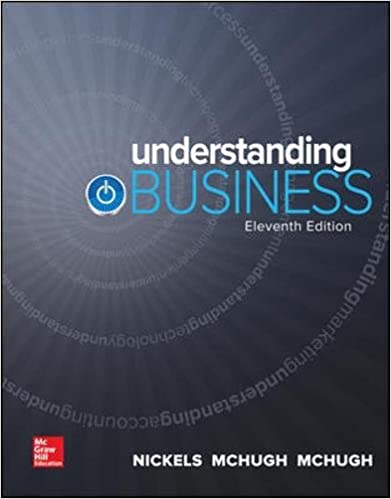

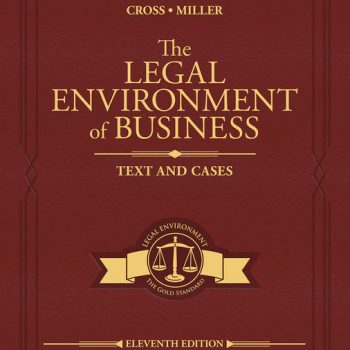
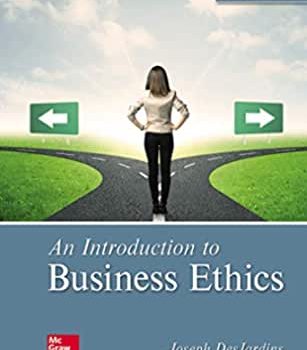
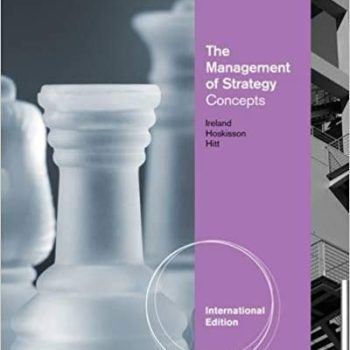

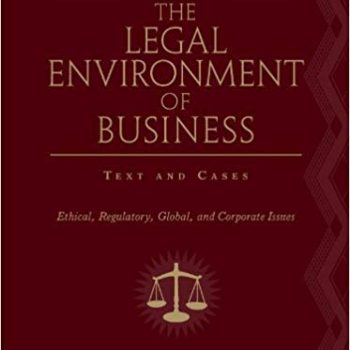

Reviews
There are no reviews yet.